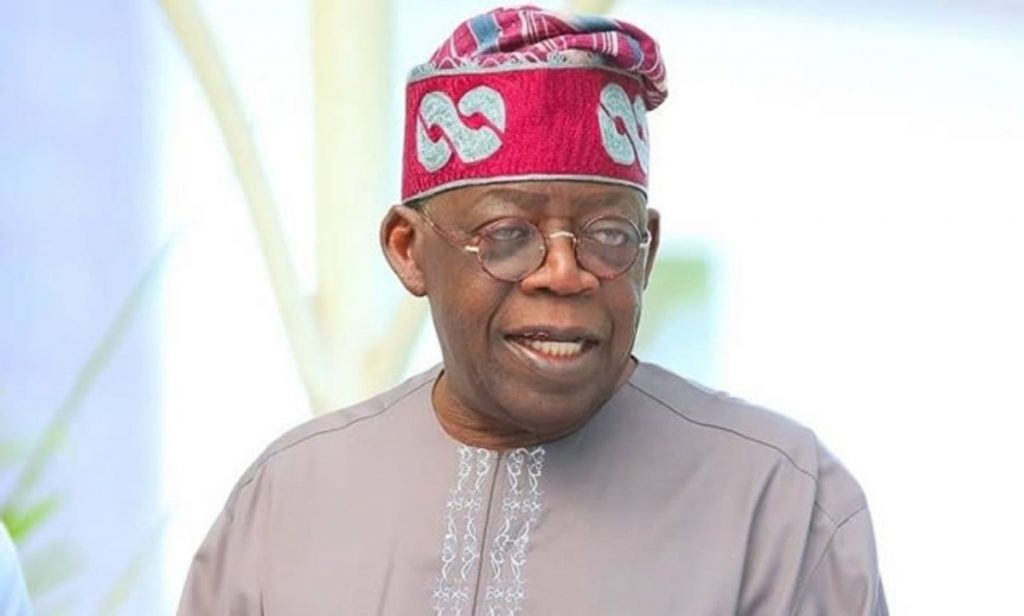By Tolulope A. Adegoke PhD
History is littered with the skeletons of great ideas that never saw the light of day. In boardrooms and basements across the world, concepts with the power to reshape industries lie dormant, suffocated not by a lack of merit, but by a lack of execution. We live in an era that venerates the “light bulb moment,” yet the painful truth, as articulated by venture capitalists and historians alike, is that ideas are a dime a dozen; it is execution that is richly rewarded . The journey from the spark of imagination to the tangible reality of a finished product, a profitable corporation, or a thriving nation is an alchemical process. It requires the transformation of abstract thought into concrete action—a discipline that separates the dreamer from the builder. This evolution of an idea into reality is not a mystical event but a replicable process, best understood through the distinct exemplars of visionary individuals, resilient corporations, and transformative nations.
The Individual: The “Thinker-Doer” Synthesis
The romantic notion of the genius lost in thought, sketching blueprints while others do the heavy lifting, is a seductive myth. The reality, as demonstrated by history’s most impactful figures, is that the major thinkers are almost always the doers. Steve Jobs, a figure synonymous with innovation, famously articulated this principle by invoking the ultimate Renaissance man, Leonardo da Vinci. Jobs argued that the greatest innovators are “both the thinker and doer in one person,” pointing out that da Vinci did not have a separate artisan mixing his paints or executing his canvases; he was the artist and the craftsman, immersing himself in the physicality of his work . For Jobs, this synthesis was the guiding doctrine of Apple. He understood that abstract ideation is sterile without the feedback loop of hands-on mastery. The refinement of the Mac’s typography, the feel of a perfectly weighted mouse, the intuitive interface of the iPhone—these were not born from pure theory but from an obsessive, tactile engagement with the building process. The “doer” digs into the hard intellectual problems precisely because they are engaged in the act of creation.
This principle is further illuminated by the career of Elon Musk. While often perceived as a master inventor, Musk’s greatest genius may lie in his ability to execute existing ideas at a scale and speed previously thought impossible. He was not a founder of Tesla on day one, but he stepped in to spearhead its execution, transforming an electric vehicle concept into a global automotive powerhouse. At SpaceX, he inherited the age-old idea of space travel but revolutionized its execution by challenging fundamental cost structures and vertically integrating manufacturing. Musk embodies the “thinker-doer” by immersing himself in the engineering details, sleeping on the factory floor, and distilling complex challenges down to their fundamental physics. Both Jobs and Musk validate the venture capital adage that investment is placed not in ideas, but in the people capable of navigating the treacherous path from Point B to Point Z—the messy, unglamorous grind where visions are either realized or abandoned.
“In the architecture of achievement, ideas are merely the blueprints; execution is the foundation, the steel, and the mortar. A blueprint without a builder is just a dream drawn on paper” – Tolulope A. Adegoke, PhD
The Corporation: Engineering the Culture of Execution
For corporations, the evolution of an idea into reality is not a one-time event but a cultural imperative. It demands a structure and a philosophy that bridges the notorious gap between strategy and outcome. Procter & Gamble (P&G), a consumer goods giant, provides a master-class in adapting its execution model to survive and thrive. Despite investing billions in internal research and development, P&G recognized that its traditional closed-door approach was failing to meet innovation targets. The company evolved its idea-generation process by embracing “Connect + Develop,” opening its innovation pipeline to external inventors, suppliers, and even competitors. This shift in mindset was merely the idea; the reality was the rigorous, internal execution that vetted, integrated, and scaled those external concepts—like the Mr. Clean Magic Eraser, which was discovered as a prototype in Japan and flawlessly executed by P&G’s operational machine. The company’s success hinges on what researchers call “imaginative integrity”—the ability to make an imagined future so tangible that the entire organization can build toward it.
Similarly, UPS stands as a testament to the power of “creative dissatisfaction.” For over a century, UPS has operated not on bursts of pure invention, but on the relentless engineering and re-engineering of its systems. Founder Jim Casey instilled a culture where the status quo was perpetually questioned—from testing monorail-based sort systems to optimizing delivery routes with algorithmic precision. The idea was not merely to deliver packages, but to create the pinnacle of logistical efficiency. The execution involved tens of thousands of employees “pulling together” to transform the organization repeatedly, embracing changes that ranged from entering the common carrier business in the 1950s to mastering e-commerce logistics in the 1990s. These companies succeed because they build what management experts call the “five bridges” to execution: the ability to manage change, a supportive structure, employee involvement, aligned leadership, and cross-company cooperation. At Costco, this is embodied by CEO James Sinegal, whose Spartan office and relentless focus on in-store details align leadership behavior with the company’s razor-thin margin strategy, proving that execution is modeled from the top down.
The Nation: The Political Economy of Progress
The evolution of ideas into reality scales beyond individuals and firms to the very level of nations. The economic trajectories of countries are determined by their ability to adapt foreign concepts and execute them within local contexts. The post-war rise of Japan is perhaps the most powerful example of this phenomenon. In the early 20th century, Japan was exposed to American ideas of scientific management, but the devastation of World War II left its industrial base in ruins. The idea that saved Japan was quality control, imported through lectures from American scholars W. Edwards Deming and Joseph Juran. The genius of Japan, however, was not in the adoption of the idea, but in its adaptation. Private organizations like the Union of Japanese Scientists and Engineers (JUSE) took the lead, transforming foreign theories into the uniquely Japanese practice of Total Quality Management (TQM) and the grassroots phenomenon of Quality Control circles. This was not government-mandated execution; it was a national movement of “thinker-doers” on the factory floor, relentlessly refining processes. The evolution of this idea rebuilt a nation, turning “Made in Japan” from a byword for cheap goods into a global standard for reliability.
In contrast, Singapore represents a different model of national execution: the state as a strategic architect. Upon independence, Singapore possessed few natural resources and a uncertain future. The government, however, possessed a clear-eyed vision of industrial development. It actively sought external assistance from the United Nations and Japan, but crucially, the Singaporean authorities acted as the “agent of adaptation” . They did not passively accept advice; they made decisive judgments about what was relevant to their unique circumstances and demanded specific adaptations. This disciplined, top-down execution of economic strategy—from building world-class infrastructure to enforcing rigorous education standards—evolved the idea of a “sovereign nation” into the reality of a first-world entrepôt. The contrast with nations like Tunisia, where external donors took the lead due to a lack of domestic policy clarity, highlights a fundamental truth: ideas flow freely across borders, but the ability to execute them is a domestic condition, cultivated through leadership and institutional will.
Conclusion: The Integrity of the Build
Ultimately, the evolution of an idea into reality demands what can be termed “imaginative integrity”—the unwavering commitment to binding the vision to the execution. It is a concept that applies equally to the Renaissance painter mixing his own pigments, the CEO sleeping on the factory floor, and the nation-state meticulously adapting foreign technology. The world is full of “crude ideas” that lack the refinement of execution; even a brilliantly designed structure like MIT’s Stata Center can falter if the craftsmanship of its realization is flawed.
The journey from “A to Z” is long, and the gap between strategy and outcome is the graveyard of potential. To traverse it, one must recognize that thinking and doing are not sequential acts but concurrent disciplines. The doers are the major thinkers, for they are the ones who test hypotheses against reality, who adapt to feedback, and who possess the grit to push through the inevitable obstacles. Whether it is a nation reshaping its economy, a corporation reinventing its logistics, or an individual defying the limits of technology, the lesson remains constant: the future belongs not just to those who can dream it, but to those who can build it.
Vision sees the path; execution walks it, blisters and all. The distance between a dream and a legacy is measured only by the courage to begin the work.
History does not remember the whisper of a thought, but the echo of its impact. To think is human, but to execute is to leave a mark on time.
Dr. Tolulope A. Adegoke, AMBP-UN is a globally recognized scholar-practitioner and thought leader at the nexus of security, governance, and strategic leadership. His mission is dedicated to advancing ethical governance, strategic human capital development, and resilient nation-building, and global peace. He can be reached via: tolulopeadegoke01@gmail.com, globalstageimpacts@gmail.com

 Boss Of The Week5 days ago
Boss Of The Week5 days ago
 Middle East5 days ago
Middle East5 days ago
 Opinion5 days ago
Opinion5 days ago
 National5 days ago
National5 days ago
 News3 days ago
News3 days ago
 Boss Picks5 days ago
Boss Picks5 days ago
 Middle East5 days ago
Middle East5 days ago
 Headline5 days ago
Headline5 days ago














